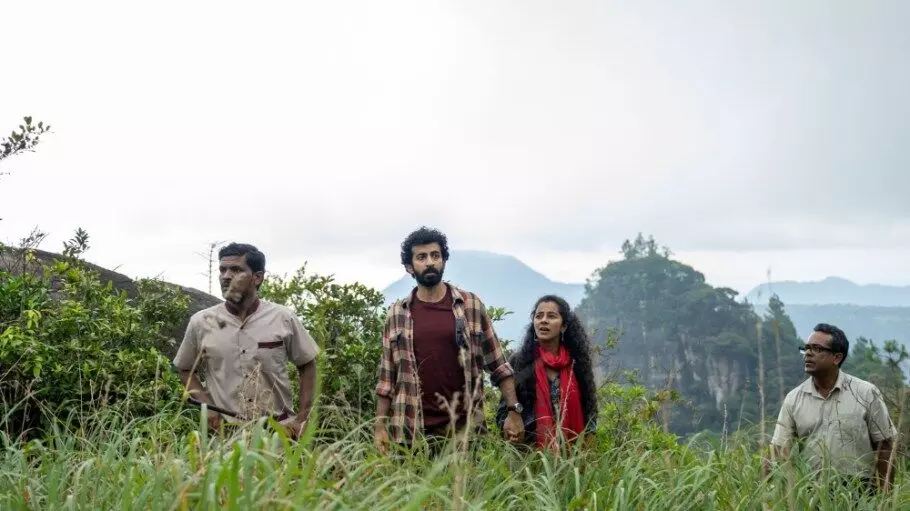
Paradise – A parable of our political sensibilities
text_fieldsNewton Cinema
How worthy is a life, when it belongs to someone from a subjugated ethnic community with absolutely no privilege? In Paradise, this question becomes central to a realm of several moral and ideological questions when a young Tamil boy from an estate breathes his last in a small Sri Lankan hospital after enduring days of suffering from injuries inflicted by police brutality. His crime? Being randomly picked by a police officer, under pressure, as a suspect in a robbery investigation, and further condemned by the robbed Indian tourist who, in a moment of wounded pride, casually identifies him as the culprit.
The terror of the state is often a result of the insensitivity of the privileged; their contemptuous apathy for lesser lives, their brutal biases, and their guilt-free aspirations. Kesav (Roshan Mathew), otherwise a well-educated, creative, ambitious and hardworking urban professional, turns out to be an embodiment of this privilege’s dark side. He is touring in Sri Lanka, with his wife Amrita (Darshana Rajendran), through the Ramayana trails, celebrating their fifth wedding anniversary. However, this Malayali couple’s journey coincides with the most severe economic crisis the island nation is going through – people are protesting in the streets as the government has declared bankruptcy. The country has run out of basic amenities, including fuel and electricity, and yet, tourism limps along.
Paradise, in a nutshell, is a poignant parable set in Sri Lanka: with strong and nuanced layers on gender, its mythological past that’s often commercialised, the decades-long sectarian conflicts, state brutality, tourism, wildlife, corruption, contemporary economic crisis et al. Renowned director Prasanna Vithanage sails us through a thought-provoking plot and sketches his impeccable characters. Vithanage’s convictions and characters are inescapable, even the wild deer that shows up here and there significantly delivers certain reminders.
The backdrop of the Ramayana tour, typically narrated by the tourist guide in the hyper-commercialised mainstream version, is midway challenged by the female lead Amritha, citing multiple other versions, especially the Jain version wherein Ravana dies at the hands of Sita. We later realise that this version is to bring an allegorical significance towards the end. Kesav and Amritha apparently share a happy bond; but slowly, deep differences unfold and distances emerge.
The death of the Tamil estate worker serves as the central moral tension of the narrative. When it shatters Amrita, her husband Kesav is nonchalant and indifferent. Evidently, he is more concerned about the lucrative project to be resumed and he desperately wants his laptop back. Amrita is guilt-ridden, conscience-pricked and confused. She takes the ethical responsibility for the death. Her question to the police officer, “Isn’t there any value for a human life?” is answered sarcastically, “Yes, the value of a vote when elections come.” The Sinhalese police officer and Kesav, at times, share the same linguistic tone when it comes to referring to the people or places they despise. Kesav believes he is doing a favour to Sri Lankans by being there and he disregards the place as sh*thole. When you start disliking a place or people, your deep-felt biases pop up. Similarly, the Sinhalese police officer doesn’t hide his xenophobic biases against Tamilians and Muslims: usages like “dark boy” and “one of them” carry the potential of ethnic cleansing. When the Muslim cook prepares meat, the officer tastes it and offers praise: “No matter what, Muslims know how to cook meat well”. Although it sounds harmless, the undertone is violent and xenophobic.
Paradise shows us how a powerful political statement can also be a great work of art. Rajiv Ravi’s cinematography, instead of highlighting the picturesque charm of the island nation, focuses more on the emotional depths of the characters. Roshan Mathew and Darshana Rajendran are flawless while shouldering their hard and heavy roles.





